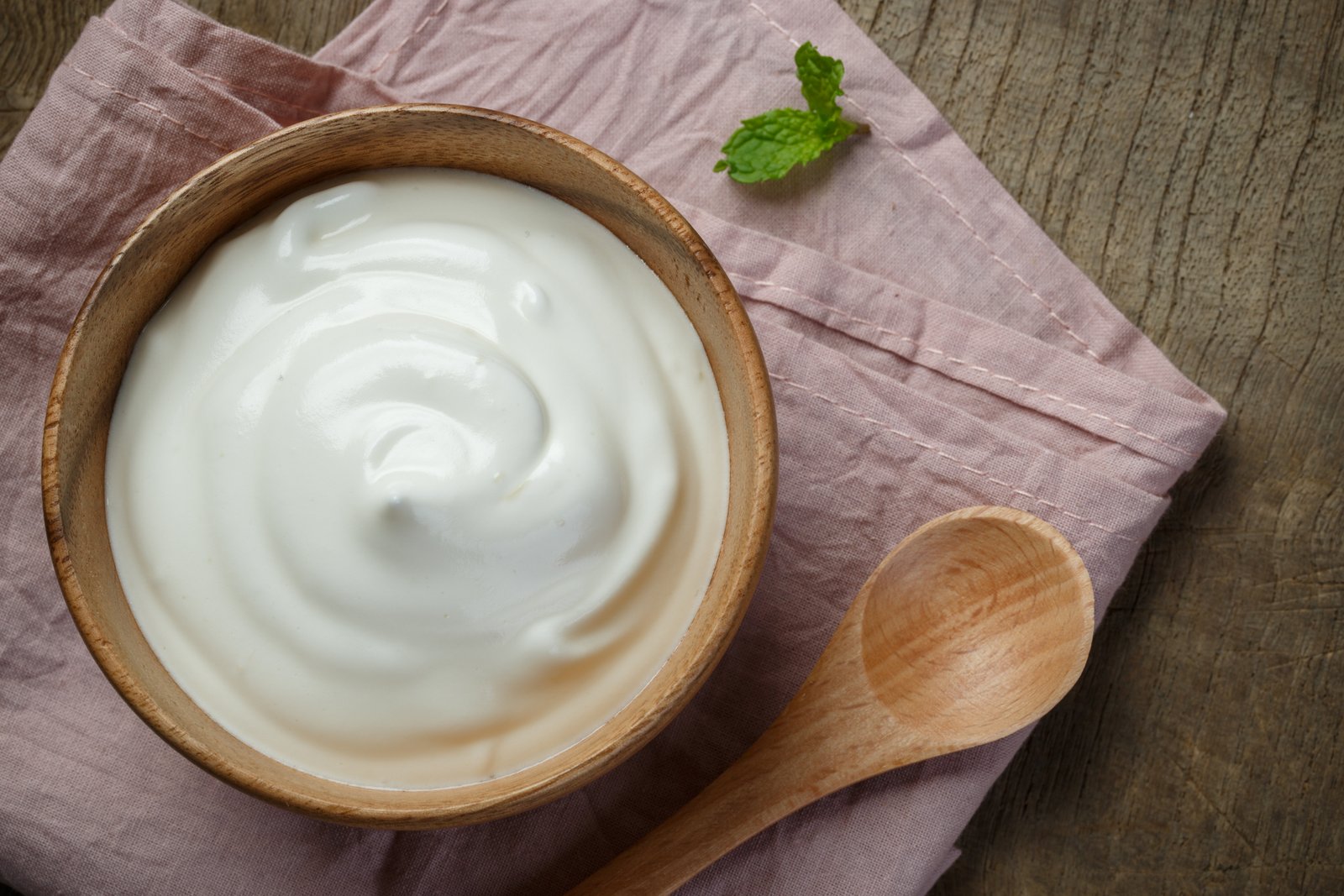
Curds, also known as yogurt or dahi, have long been a staple in various diets around the world. Made from the fermentation of milk, curds not only offer a deliciously creamy taste but also boast an array of nutritional benefits. Whether enjoyed on its own or mixed with fruits, nuts, or granola, curd is a versatile and nutritious addition to any meal. In this article, we will explore 20 fascinating curd nutrition facts that highlight its importance in maintaining a healthy lifestyle. From its high protein content to its probiotic properties, you’ll discover why curd is not just a tasty treat but also a great source of essential nutrients. So, let’s dig in and uncover the many reasons why curd should be on your daily menu!
Key Takeaways:
- Curd is a protein-packed, probiotic powerhouse that supports digestion, strengthens immunity, and promotes healthy hair and skin. It’s a versatile and delicious addition to your diet!
- With its rich calcium, vitamin B12, and potassium content, curd aids in weight management, heart health, and bone strength. Enjoy curd as a satisfying snack or as a versatile ingredient in various dishes!
Rich in Protein
Curd is a great source of protein, making it an excellent choice for vegetarians and vegans. It contains essential amino acids required for muscle growth, repair, and overall wellbeing.
Probiotic Powerhouse
Curd is a natural probiotic, packed with beneficial bacteria that promote a healthy gut. These good bacteria aid digestion, enhance nutrient absorption, and boost overall gut health.
Calcium Boost
Curd is a rich source of calcium, essential for maintaining strong bones and teeth. It also aids in nerve function and plays a vital role in muscle contraction.
Vitamin B12 Content
Curd is an excellent source of vitamin B12, crucial for healthy brain function, nerve health, and the production of red blood cells. It is especially important for individuals following a vegetarian or vegan diet.
Immunity-Boosting Properties
The live cultures present in curd help strengthen the immune system, improving the body’s ability to fight against infections and diseases.
Digestive Aid
The presence of probiotics in curd helps maintain a healthy balance of gut bacteria, aiding in digestion and reducing digestive issues such as bloating, constipation, and diarrhea.
Low in Lactose
Individuals with lactose intolerance may find curd easier to digest compared to milk. The fermentation process breaks down lactose, making it less problematic for those with lactose sensitivity.
Source of Vitamin D
Curd is a good source of vitamin D, crucial for bone health, calcium absorption, and immune function. It also plays a role in maintaining healthy skin.
Potassium-Rich
One serving of curd provides a significant amount of potassium, which is essential for regulating blood pressure, maintaining heart health, and supporting proper muscle and nerve function.
Healthy Snack Option
Curd can be a satisfying and nutritious snack on its own or combined with fruits, nuts, or granola. Its high protein content helps keep you feeling full and satisfied for longer.
Weight Management
The protein and calcium in curd can aid in weight management by promoting feelings of fullness and supporting the maintenance of lean muscle mass.
Source of Riboflavin
Curd is a good source of riboflavin (vitamin B2), which plays an essential role in energy production, maintaining healthy skin, and promoting good vision.
Promotes Healthy Hair and Skin
The nutrients present in curd, such as protein, vitamin B12, and vitamin D, contribute to healthy hair and skin by supporting cell growth and repair.
Contributes to Heart Health
Curd contains potassium, calcium, and magnesium, all of which play a role in maintaining healthy blood pressure and reducing the risk of cardiovascular diseases.
Source of Phosphorus
Curd is a good source of phosphorus, an essential mineral that supports bone health, kidney function, and overall energy production in the body.
Alleviates Osteoporosis Risk
The combination of calcium, phosphorus, and protein in curd helps reduce the risk of developing osteoporosis, a condition characterized by weak and brittle bones.
Natural Remedy for Acid Reflux
Curd’s probiotic properties help soothe acid reflux symptoms by balancing the gut microbiome, reducing inflammation, and promoting proper digestion.
Source of Zinc
Curd is a good source of zinc, an essential mineral that supports immune function, wound healing, and DNA synthesis.
Boosts Vitamin E Intake
Certain varieties of curd contain vitamin E, an antioxidant that helps protect cells from damage, supports the immune system, and promotes healthy skin.
Versatile Ingredient
Curd can be used in various dishes, from smoothies to marinades, salad dressings, and desserts. It adds creaminess and tanginess while boosting the nutritional content of your meals.
Now that you know these incredible 20 curd nutrition facts, you can make informed choices about incorporating this delightful dairy product into your diet. Enjoy the numerous health benefits that curd brings and indulge in its creamy goodness!
Conclusion
In conclusion, curd is not just a delicious and versatile food, but it also provides numerous health benefits. Its high protein content aids in muscle growth and repair, while the probiotics promote a healthy gut. Curd is also rich in essential vitamins and minerals like calcium, phosphorus, and B vitamins, which are vital for maintaining strong bones, teeth, and overall well-being. Additionally, curd is low in calories and fat, making it a great option for weight management. Whether you enjoy it plain, in smoothies, or as a topping for various dishes, incorporating curd into your diet can provide you with a wide range of nutrients and contribute to a healthier lifestyle.
FAQs
1. What is curd?
Curd, also known as yogurt, is a dairy product made by fermenting milk with specific bacteria. The fermentation process causes the milk to coagulate, resulting in a thick and creamy substance with a tangy flavor.
2. Is curd good for digestion?
Yes, curd contains probiotics, which are beneficial bacteria that support a healthy gut. These probiotics aid in digestion by promoting the growth of good bacteria in the intestine and improving overall gut health.
3. Does curd help in weight loss?
Yes, curd can contribute to weight loss. It is low in calories and fat, making it a nutritious choice for those looking to shed some pounds. The high protein content in curd also helps in promoting satiety and curbing cravings.
4. Can lactose intolerant individuals consume curd?
Individuals who are lactose intolerant may still be able to consume curd. During the fermentation process, the lactose in milk is converted into lactic acid, making curd easier to digest. However, it’s always best to consult with a healthcare professional for personalized advice.
5. Can I make curd at home?
Absolutely! Making curd at home is easy. All you need is some milk and a small amount of curd as a starter culture. Heat the milk, cool it to a warm temperature, add the curd, mix well, and let it sit at room temperature until it thickens. Homemade curd has the added advantage of being free from additives and preservatives.
Was this page helpful?
Our commitment to delivering trustworthy and engaging content is at the heart of what we do. Each fact on our site is contributed by real users like you, bringing a wealth of diverse insights and information. To ensure the highest standards of accuracy and reliability, our dedicated editors meticulously review each submission. This process guarantees that the facts we share are not only fascinating but also credible. Trust in our commitment to quality and authenticity as you explore and learn with us.


